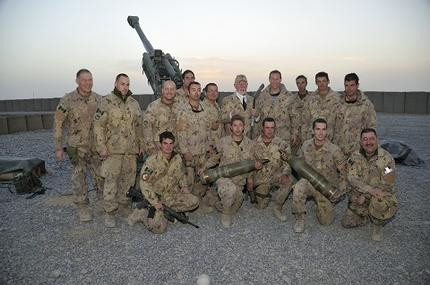A Fiery Inferno
What is the cost of our “just” war?
We can’t possibly leave, we’re told.
But what, exactly, is the cost of our “just war?”
With a seemingly bullet-proof Prime Minister gearing up for another election run (who is Ignatieff here for again?) and promising to keep troops in Afghanistan past the long-agreed-upon exit date, perhaps it’s time to reflect on what exactly it is we are doing with the billions of dollars we are diverting from our budget, and why it is that—even with gigabytes of information pointing to the opposite—we still cling to the notion that democratizing a country is as easy as killing tens of thousands of their citizens and destroying essential infrastructure.
This war is not Canada’s war. As far back as 2007, 56 per cent of Canadians said that they wanted Canadian troops out of Afghanistan, according to a CBC poll. In a more recent poll, 52 per cent of Afghans said that they want NATO out as soon as possible.
We are still in Afghanistan, quite simply, because we have agreed to bear the brunt of the combat responsibilities of the over-extended American army. We have agreed that, despite 2009 being a record year for civilian casualties in Afghanistan with nearly 3,000 killed, the best way to democratize the country is to train a sizeable military and hope that the person who ends up controlling this group has democratic aspirations.
This is also difficult to accomplish when the person currently in charge, Hamid Karzai, is closely linked to influential drug dealers, including his own brother. Canadian troops were told in 2007 to apprehend opium dealers and to destroy opium production facilities—as long as there was proof of a link to the Taliban.
Apparently, opium is only harmful in the hands of terrorists rather than government officials, and we’re footing the bill to protect the chokehold on the market of some of the most prolific opium producers in the world.
But the lack of protest in this country of the Afghanistan war is more indicative of the general political apathy of our population than a general acceptance of the war. When barely half of the population can be bothered to vote, how many can be expected to protest a war that hardly affects them and appears to them mostly as a heroic recruitment ad for the military?
It’s time we stopped infantilizing the third world. There’s little evidence that leaving Afghanistan would be calamitous to anything except our political relationship (subservience?) to the Great War Machine to the south. And if the last few weeks have proven anything, it’s that suppressed populations in the Middle East can fight for democracy themselves without the help of indiscriminate bombing and carnage. The militaries of Egypt and Libya have been fighting their own governments rather than hiring NATO thugs (Canada has spend over $40 million on mercenaries since the start of the war.)
With a probable election looming, it’s time for Canadians to realize that none of our political leaders have expressed a serious desire to withdraw from Afghanistan. Until we force our leaders to acknowledge the will of the people on this issue, expect us to remain in Afghanistan even beyond the new, tentative 2014 withdrawal of all troops, and expect our government to keep pushing the idea that democracy is a dish best served in a fiery inferno.
This article originally appeared in Volume 31, Issue 24, published March 7, 2011.



